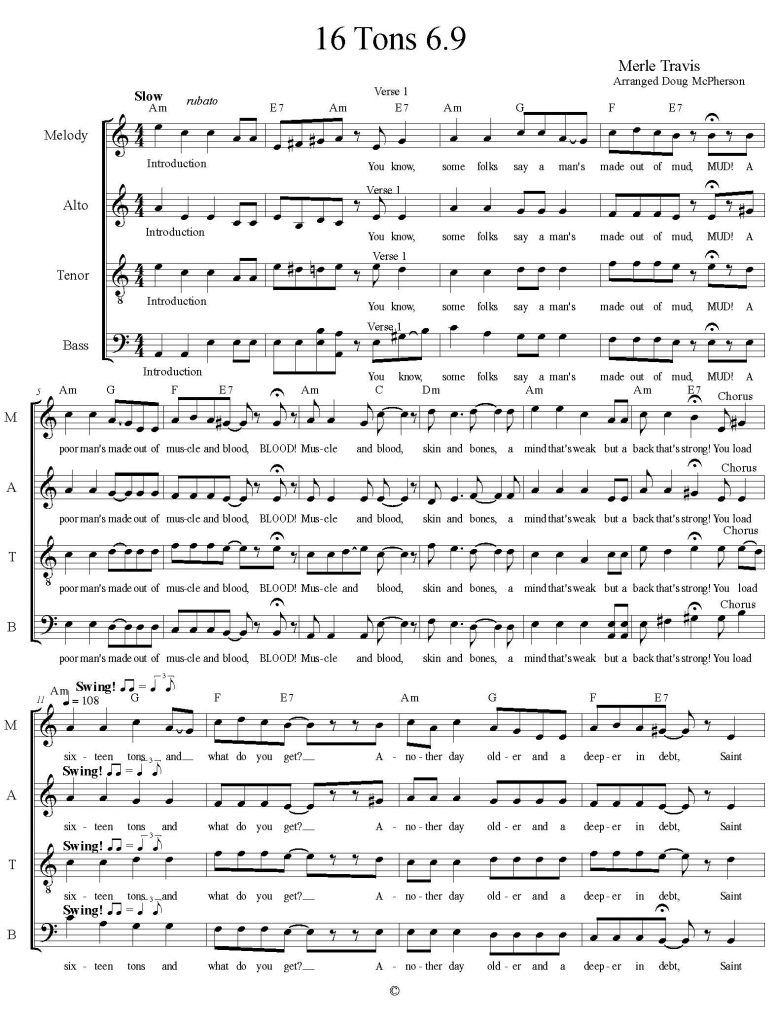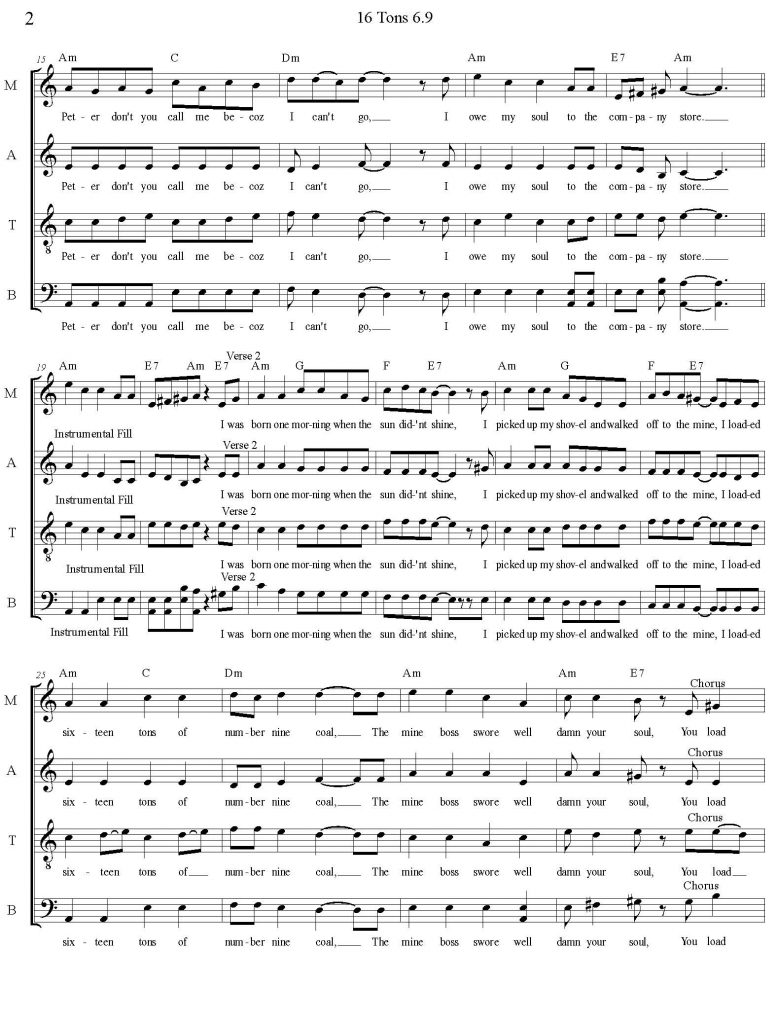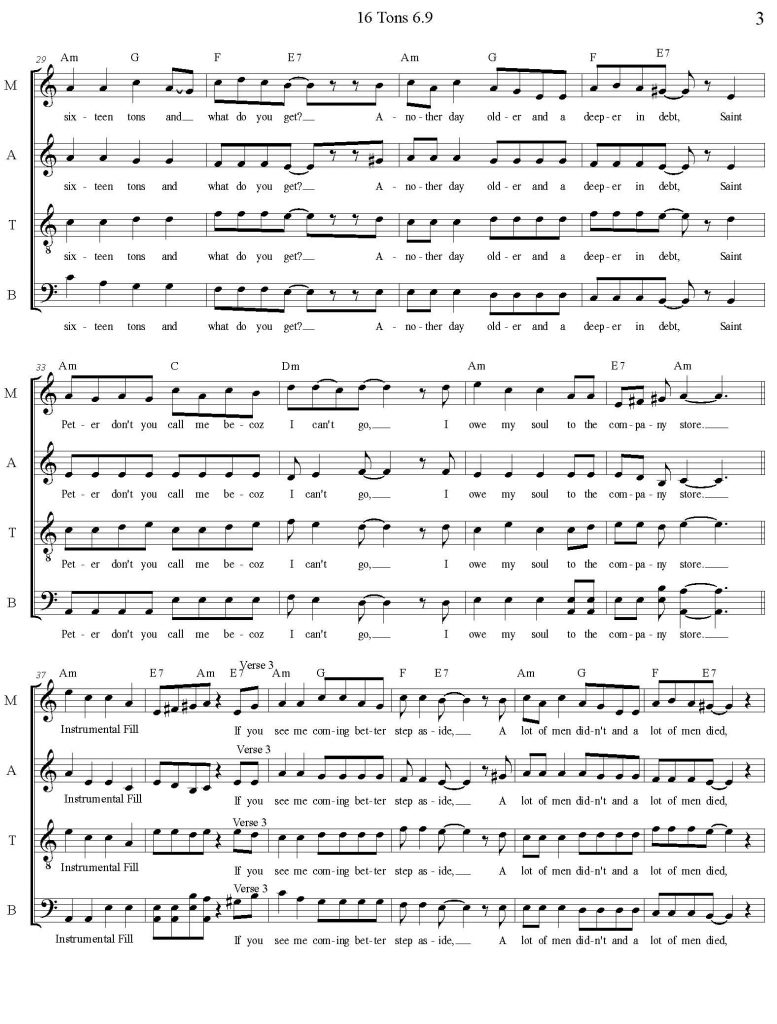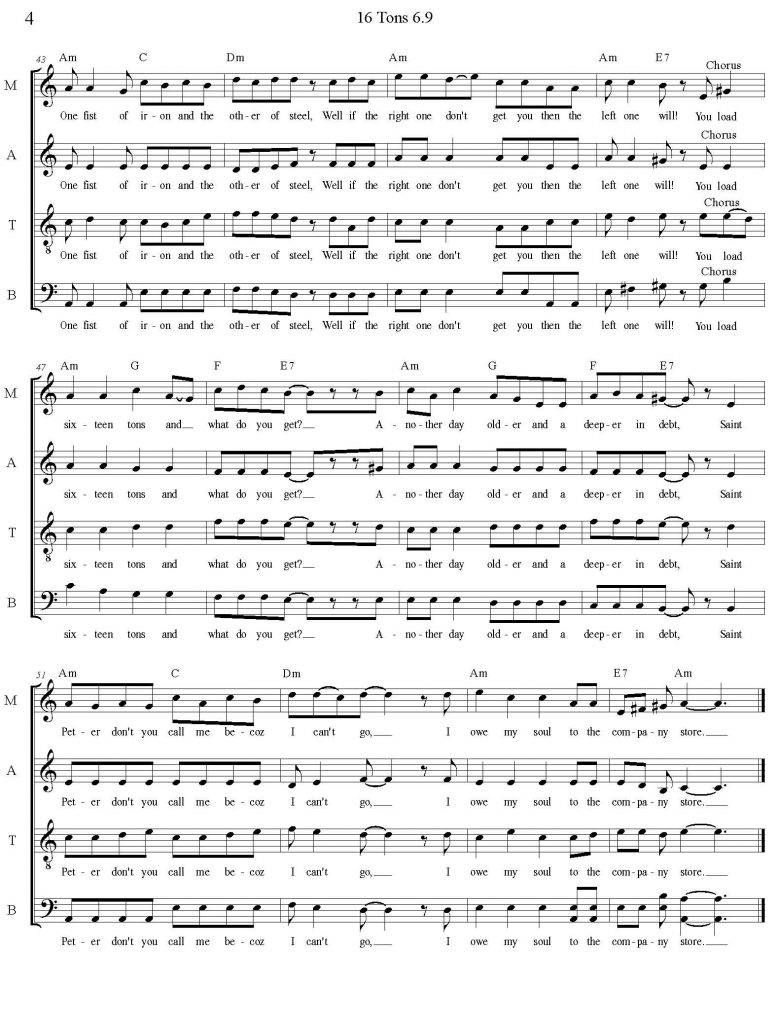A song by Merle Travis, arranged for 4 voices and guitar by Doug McPherson. Scroll down to the link below, for the sheet music, in PDF format, or the images below that. The melody, on the top line could be sung by sopranos or tenors. The top line, the alto line and the bass line, could all stand alone as a melody for a soloist. Current version is 6.9.
Practice Tracks: Piano on Target Voice
To Download: on a PC, right-click on title; on Android devices, press and hold title.
And finally, after you practice your own part, see if you can sing it against the other parts. Check out the 2nd funky keyboard arrangement.
All Parts Scored for Piano, Harpsichord, Electric Piano & Organ
Sheet Music for Individual Parts:
16 Tons 6.9 Sheet Music with words: 3 verses, 4 parts, -pdf
Right click title above to download on PC, press and hold on Android.



I used this arrangement, “The Weavers” 1955 Carnegie Hall Performance, as a starting point for my arrangement.
And here is Merle Travis, the composer:
And finally, the Union Singers and a rendition of the song:
Writing of the song, Wikipedia summarises:”Sixteen Tons” is a song about a coal miner, based on life in coal mines in Muhlenberg County, Kentucky. It was written and first recorded by Merle Travis at the Radio Recorders Studio B in Hollywood, California on August 8, 1946. Cliffie Stone played bass on the recording. It was first released by Capital on the album Folk Songs of the Hills (July 1947).[3]
The line, “You load sixteen tons and what do you get? Another day older and deeper in debt,” came from a letter written by Travis’ brother John. Another line came from their father, a coal miner, who would say, “I can’t afford to die. I owe my soul to the company store.”……
This and the line, “I owe my soul to the company store”, is a reference to the truck system and to debt bondage. Under this scrip system, workers were not paid cash; rather they were paid with non-transferable credit vouchers which could be exchanged only for goods sold at the company store. This made it impossible for workers to store up cash savings. Workers also usually lived in company-owned dormitories or houses, the rent for which was automatically deducted from their pay. In the United States the truck system and associated debt bondage persisted until the strikes of the newly formed United Mine Workers and affiliated unions forced an end to such practices.